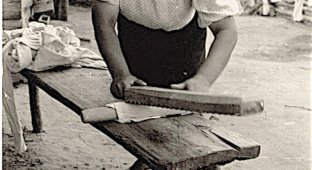Why do Koreans keep stones instead of animals and how does this relate to statistics (7 photos)
South Korea has very tough competition and a hierarchical corporate culture, growing social isolation, and the level of stress among young people is prohibitive. How do people deal with this? 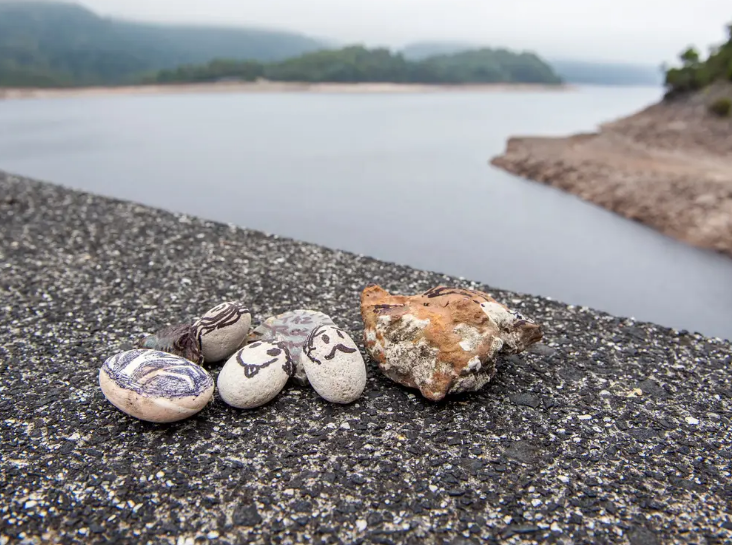
Someone has a whole family of stones, a rich menagerie, however!
Have pets. But if you work 12 hours a day, what kind of animal can you afford?
That's right - a stone.
This is a growing trend - not a Korean invention. It was invented by the American Gary Dahl back in the 70s in America. She even sold pet rocks for $4 apiece, which made her a fortune. After all, 4 dollars in the 70s was a decent amount.
And now the Koreans have seriously adopted this humorous trend from America. 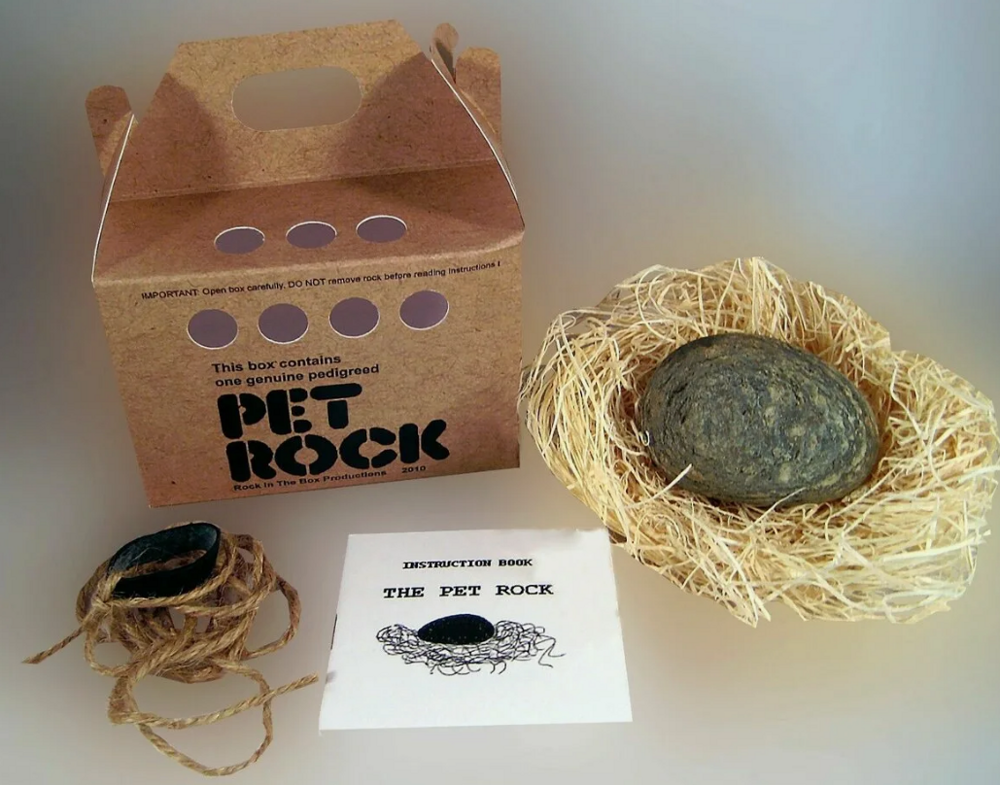
These are still sold in America, but as a joke, not as a trend.
What can you talk about with a stone?
Interviews with owners of home stones (who even have their own community) showed that most often Koreans share problems at work and how emotionally burned out they are in the constant race. 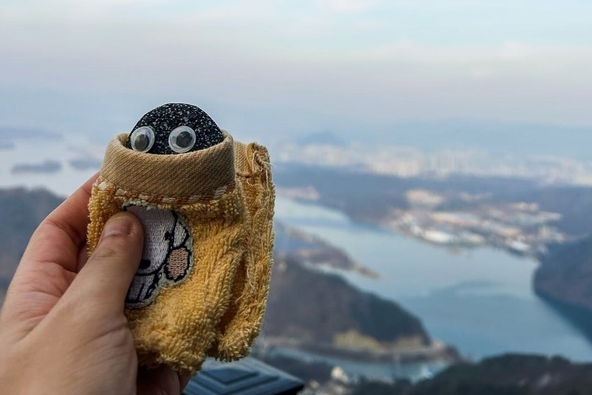
This stone is very lucky; it has a very caring owner!
Is it not possible to complain about difficulties to your family? The point is that everyone in the family also has problems, and everyone has work. It turns out that it’s just to hang the same problems on a person, Koreans think that this is not fair.
In South Korea, since Covid, there has been a boom in pets, and the country is very “dog-friendly”; cats are rarely owned here. During the Covid isolation, dogs helped fight loneliness, especially since there was a lot of propaganda in the country that a dog is a friend, and not dinner meat. 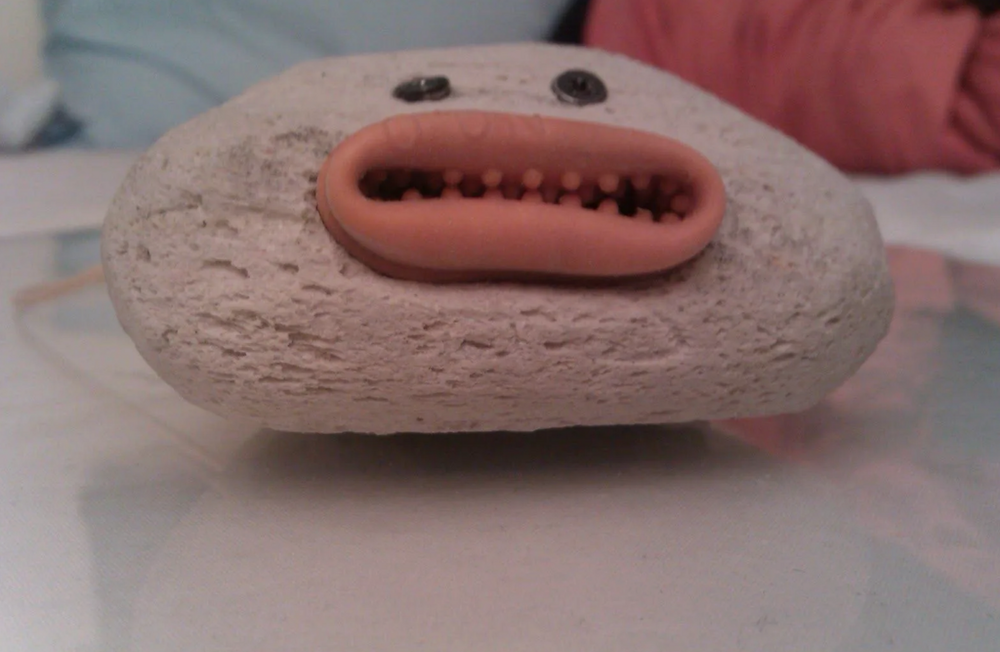
I would have one like this, he’s just adorable!
But when the Koreans went back to work (and I wrote that the country was unique in the sense that almost no one wanted to stay remote, unlike other countries), there was no one to care for their pets.
The work schedule of young people is as exhausting as always; they cannot feed or walk the dog. But you want to have warmth nearby, so they trust their worries to stones.
What did you call this stone?
A name is a mandatory attribute to animate a found cobblestone. They give bright, positive names. For example, “Bang-Bang-ee” (which means jumping for joy, ironic for a stone). You can also carry the stone with you in your pocket and stroke it with your finger whenever you want. 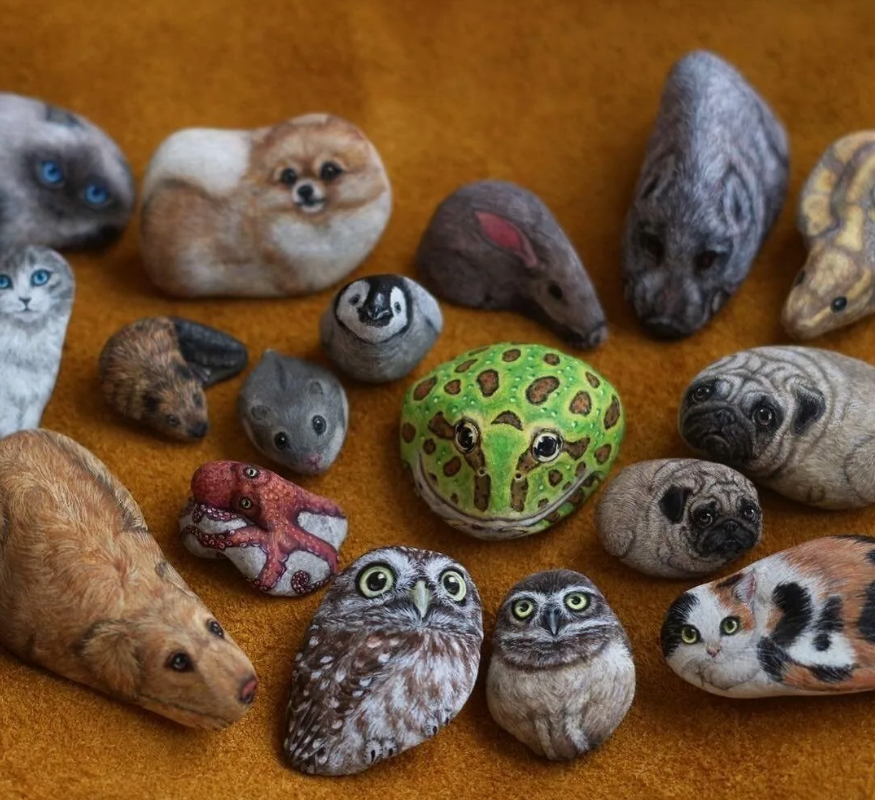
The pig and the cat are just super, this is art, not pain
In their communities of interest, Koreans post photos of how they set up a “house” for stones at home, how they decorated it or how they painted it. They immediately started selling “very beautiful stones with a good aura” on the website with private advertisements. Now they cost from $9. Inflation!
Stones and social statistics
Do you know how this fun hobby is related to global statistics for the country? I love analyzing numbers like this. It turned out that South Korea has the largest percentage of one-person households, even more than Japan. 
It’s a mystery to those who know Korean culture, how many times a week someone else’s shoes are found on a bridge like this...
That is, you have no one to leave the animal with if you go on a business trip or end up in the hospital, but you want an animal. So they found such a way out, but it’s funny that it’s not a wife-column, as single people do in Japan.
In March 2023, the South Korean government tried to increase the working week from 52 hours to 69 hours (!!!), but was forced to reconsider the plans after an acute negative reaction from young people. Of course! 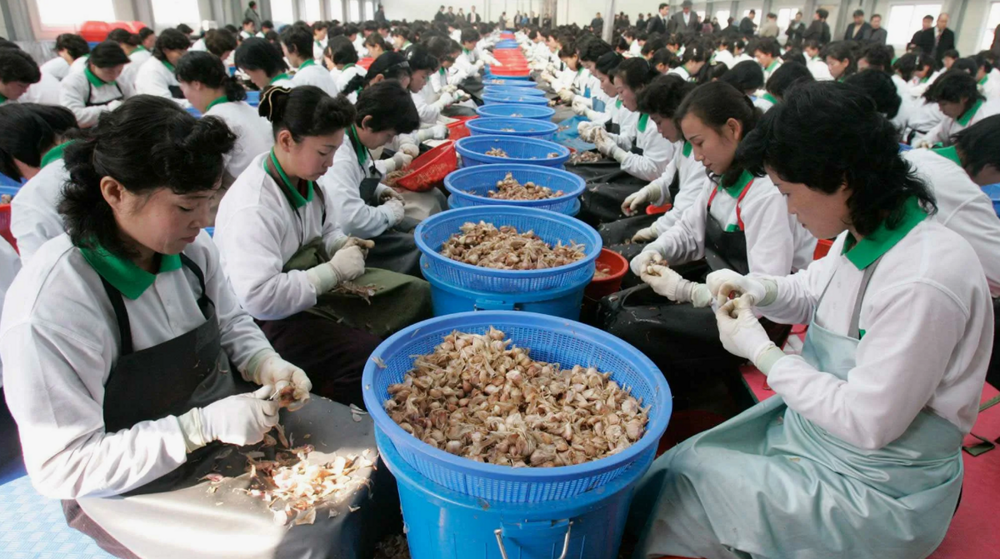
Koreans also work in such jobs, because migrants won’t - they don’t pay enough















